#Carlos V Rey Emperador
Text
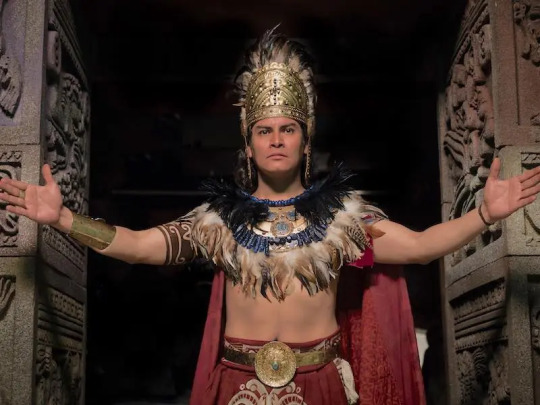
Cristhian Esquivel as Montezuma in the historical drama, “Carlos V, Rey Emperador”
#I know Cristhian Esquivel is Andean and not central american but he looked so good here#Carlos V Rey Emperador#Andean actor#andean actors#Montezuma#mexica history#colonization tw#historical drama#indigenous history#indigenous historical figures#ndn tumblr#period drama with native actors#cristhian esquivel#Aztec civilization#mesoamerica#Montezuma II#colonization of mesoamerica
14 notes
·
View notes
Text
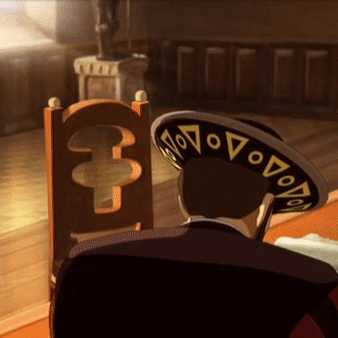

MCO cameos | Carlos V
#le p'tit caméo de Carlos et Mendoza torse poil sont les deux seuls éléments qui valident l'existence de la saison 2#les mystérieuses cités d'or#the mysterious cities of gold#16th century#carlos V#mco gifs#saison 2#2012#02x02#carlos rey emperador#mco cameos
4 notes
·
View notes
Text
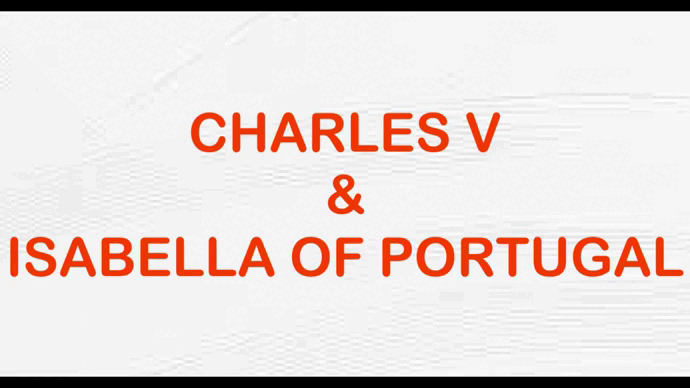







ʜᴀᴘᴘʏ ᴍᴀʀʀɪᴀɢᴇꜱ ɪɴ ᴛʜᴇ ꜱᴘᴀɴɪꜱʜ ʜᴀʙꜱʙᴜʀɢ ᴅʏɴᴀꜱᴛʏ
#charles v#Charles I of Spain#Isabella of Portugal#philip ii of spain#elisabeth of valois#isabel de valois#Carlos I de españa#anna of austria#philip iii of spain#margaret of austria#carlos rey emperador#habsburg dynasty#la princesa de eboli#michelle jenner#el ministerio del tiempo#spanish history#period drama#period drama edit#alvaro cervantes#elena rivera
42 notes
·
View notes
Text
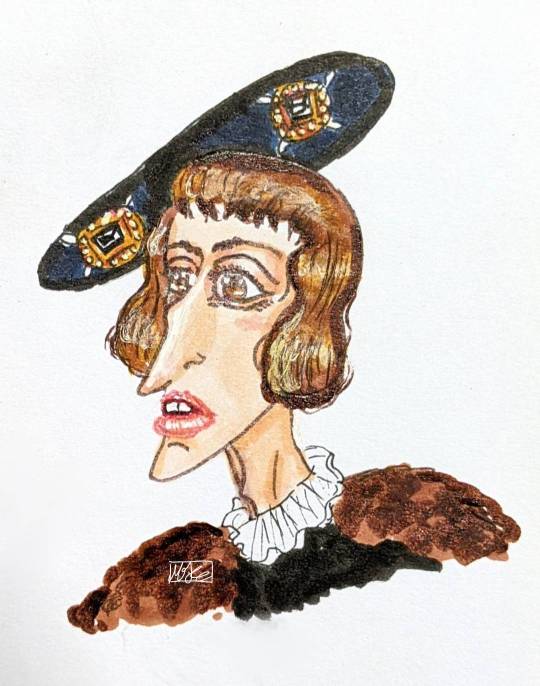

That one Soft Pretty Watercolour Style 16th century insta artist absolutely MISSING out on the potential of pouting lips and bedroom eyes 😞😞😳🤡
#Charles v#Ferdinand i#Emperor charles v#16th century#house of habsburg#MY BOYS!!!!1!1! MY DARLING DARLING UGLY BOYS!!!1!1!!#I think they deserve to be drawn pretty too :''')#They will never be pretty i dont think unless dr*gged up to the nines ((see: dr*g r*ce p*loma))#But that doesn't automatically mean they should be left out n ignored i think...!! Bc... I feel like.... Beauty is not something you earn?#And ugliness is not a sin that like. Pits you on the other end of an irreconcilable gulf from it. Beauty and ugliness just //is// yknow#And they can co-exist too but that's a slightly different matter#N it's just. So ughhhhhh idk when ppl lEAVE THESE TWO OUT OF THEIR PRETTY HISTORY NARRATIVES CLOUDED BY THESE ROMANTIC NOTIONS AND BLAH#Bc aesthetically they dont fit!!!! I mean u look at carlos rey emperador for instance and tell me that's him#Well idc here they are. Whether they fit or not here they are#Also theyre the holy roman emperors like who needs pretty. Lol#Also said artist is @/heqijin on Instagram
12 notes
·
View notes
Photo
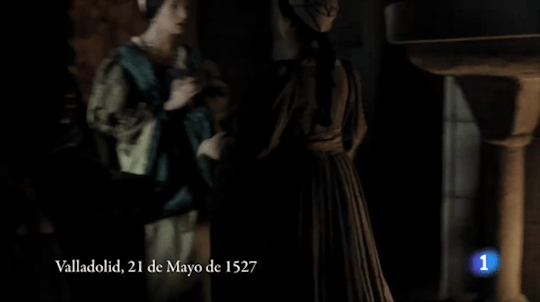


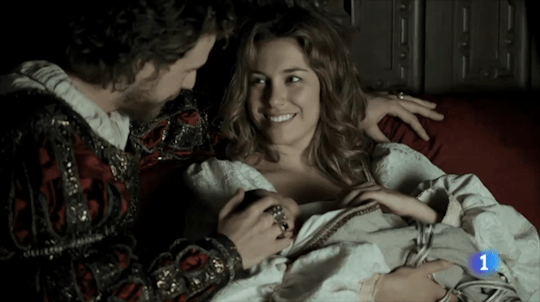


21 May 1527 - The Birth of Philip II of Spain
“As is often the case with a first child, the empress was in labour for many hours. She asked for a veil to be placed over her face, so that no one would see her agony; and when a midwife urged her to give full vent to her feelings the empress replied sternly: ‘I would rather die. Don’t talk to me like that: I may die, but I will not cry out.’ Philip entered the world around 4 p.m. on 21 May 1527. Many Spaniards had expected the prince to receive one of the traditional names of the peninsular dynasties, such as Fernando or Juan, but Charles insisted on calling his firstborn after his own father, and so at the baptism ceremony two weeks later the royal heralds shouted three times: ‘Philip, by the grace of God prince of Spain!’”
Geoffrey Parker, Imprudent King: A New Life of Philip II
El Rey.
Amados y fieles nuestros: A Nuestro Señor ha placido alumbrar a la serenísima Emperatriz, nuestra muy cara y amada muger, con un hijo, que parió a los XXI del presente. La qual, aunque ha pasado harto trabajo, queda ya, loores a Dios, muy buena. Plegará a la divina bondad que deste fructo que ha sido servido de darnos, succederá mucho servicio suyo, establecimiento de beneficio público y reposo de nuestros Reinos y señoríos.
Avisámosvos dello por vuestro contentanmiento y para que deis gracias a Dios por tanto beneficio.
Data en Valladolid a XXIII de Mayo de MDXXVII.
Yo, el Rey.
Philip’s birth announcement by Charles V, 23 May 1527. In Felipe II y su tiempo by Manuel Fernández Álvarez
#Philip II#Philip II of Spain#Charles V#Isabella of Portugal#Geoffrey Parker#¡Feliz cumpleaños Felipito!🥳#Ok ok I overuse that quote by Parker but this time in addition I have found Philip's birth announcement#also big thanks to Carlos Rey Emperador for giving us a proper Philip’s birth scene#sources
50 notes
·
View notes
Text
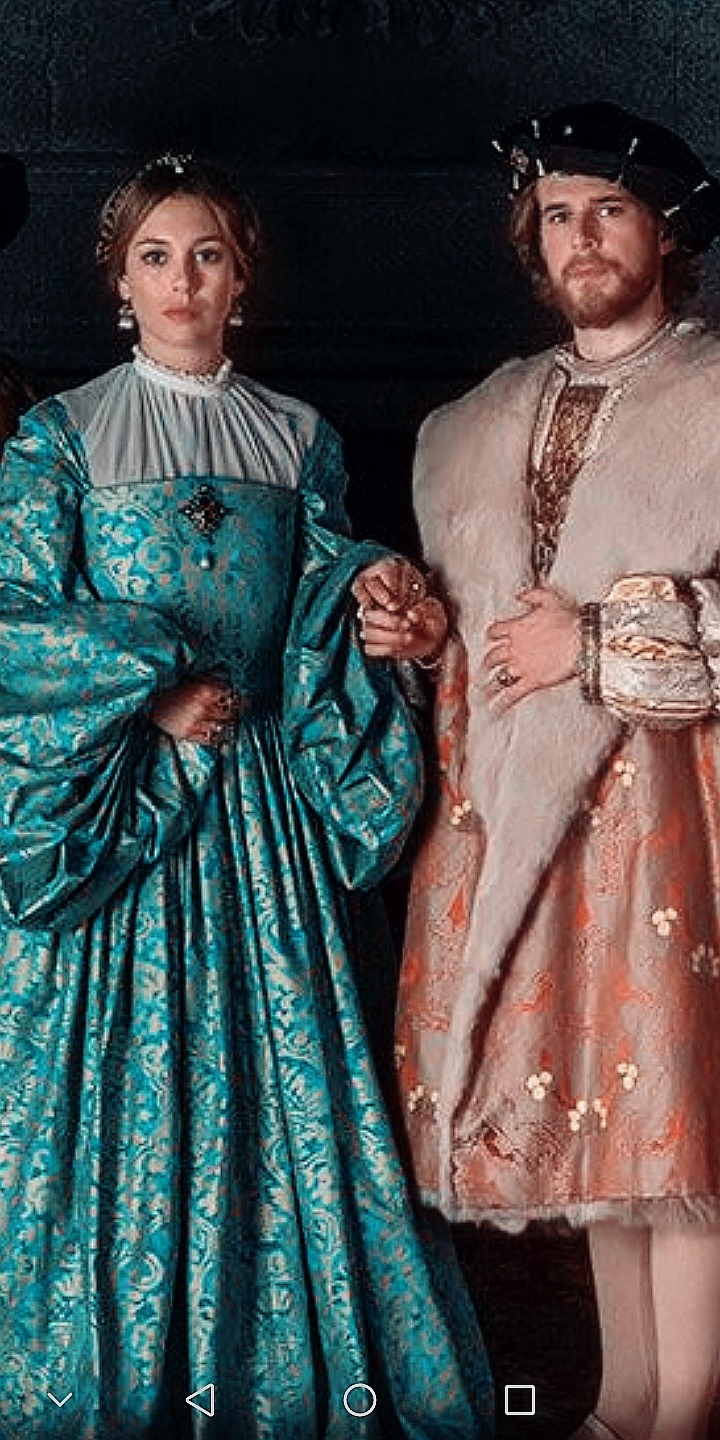



Carlos Rey Emperador 2015
Blanca Suárez as Isabel de Portugal
Álvaro Cervantes as Carlos V
#isabel de portugal#isabella of portugal#charles v#carlos rey emperador#carlos v#Blanca Suárez#Álvaro Cervantes
20 notes
·
View notes
Text
"You protect yourself from a betrayal that hasn't existed, so you betray me."
Ferdinand I (from Carlos Rey Emperador,2015)
#carlos rey emperador#ferdinand I#on betrayal#he later becomes archduke of austria#its ok ferdinand becomes hre after carlos v abdicated#but they didnt forgive each other#another day of hapsburg spicy family drama
3 notes
·
View notes
Text
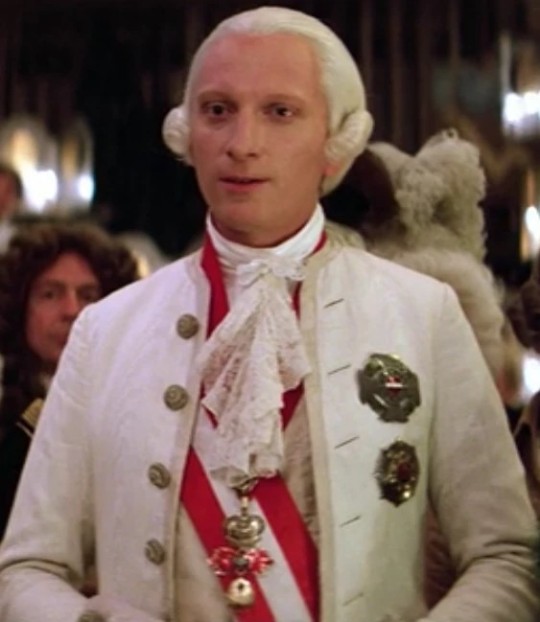
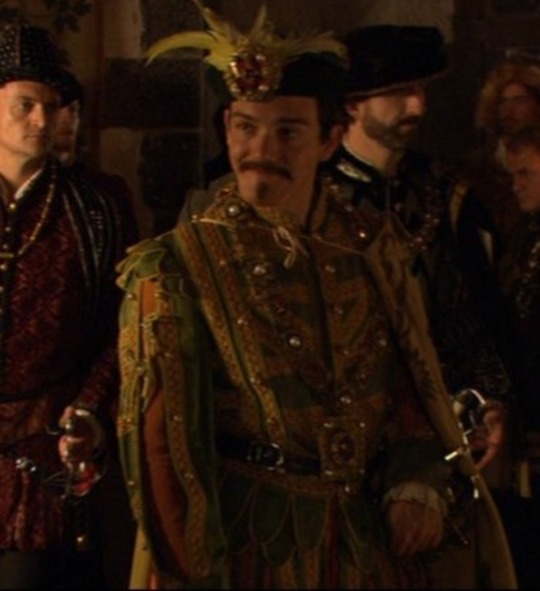

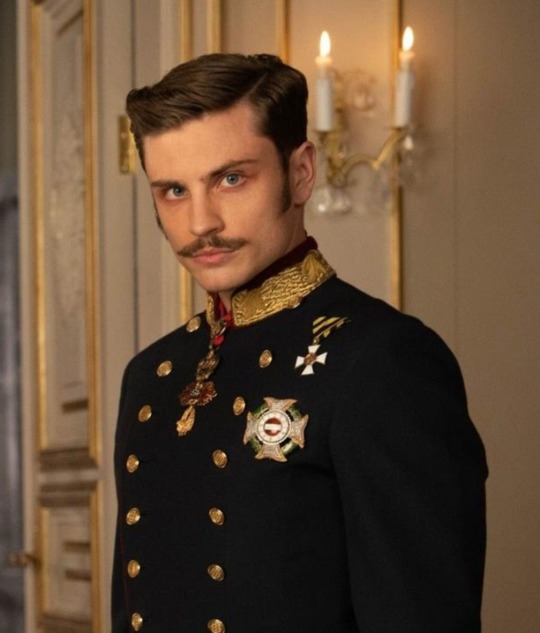
Joseph II in Amadeus: I will say first and foremost that this is not a judgement on Amadeus as a movie generally. Rather, it is because renowned historian and biographer of Joseph II, Derek Beales took a long tangent in a serious historical article to complain that Amadeus got the look right and everything about his personality wrong. His assessment was that the only positive of the portrayal was that people knew who he was talking about when he discussed his research, provided that he call Joseph "Mozart's Emperor"
Charles V in The Tudors: When I was looking for an image, Google asked if I'd rather be looking at Carlos, rey emperador, and yeah...I really would. The Spanish in The Tudors are all universally swarthy, zealous, and flamboyant. Charles appears relatively shortly in the first season and then never again for some reason. He has an...interesting prosthetic chin.
Maximilian of Mexico in Die Kaiserin: Here's a puzzle for you: You, a writer of a TV show, have decided to include a (probably) queer liberal prince who was known for his romantic tendencies, friendship with his sister-in-law, interest in botany, and progressive politics. How do you portray him? If your answer is flamboyant villain whose goal seems to be sleeping with his sister-in-law and overthrowing his brother, you are the writers of Die Kaiserin. As @archduchessofnowhere succinctly put it "probably the biggest character assassination he suffered since his actual death."
Admin 1 would like to add:

Franz Joseph in Sisi (2022): So, this may be more or less a stand-in for every portrayal of Franz Joseph that is fixated on him being a bad husband and father for the sake of his wife's character. But this one gets a special mention though for the creative new implication that He, Sisi, and Andrassy should have a threesome to solve all their tension.
#best habsburg bracket#bonus round#if you can hear admin 1's incoherent rage at Maxi's portrayal in Die Kaiserin#there is a good reason for that
14 notes
·
View notes
Note
We all know spain and austria were married for the longest time, could you talk about it
Just short of 200 years! And yet I don't know if I can say they actually spent much time together. King Charles V split it off because it was just too much for one man to get to grips on, so if they were one household it was for... I don't know how to define it actually. Either 1506 if you go with a Habsburg becoming King of Spain or 1519 where politically the HRE, Austria, BeNeLux and Spain all united. Personal or political union, usual story... Point is, it politically split in 1522 (when Charles ceased to be Archduke of Austria and gave it to his brother), or 1556 (where he gave up Holy Roman Emperor and gave it to his brother), or... I don't know. It's complicated. So, if you're going by that metric definition of marriage, they at worst didn't even manage five years. If you're going by the name and name alone, then yeah, you've got 200 years together.
I think we know in canon Antonio's household was BeNeLux, Romano and I assume where relevant Portugal. Austria had HRE, Czechia/Bohemia and Slovakia, Hungary and Veneziano, amongst others. I think it's important to remember that the "Let others wage war, but thou, O happy Austria, marry; for those kingdoms which Mars gives to others, Venus gives to thee" quote refers not just to the intermarriages with Spain, but also Bohemia, Hungary plus the pressures on Poland and France. Also Austria did absolute buckets of fighting at this time.
Austria is literally designed to be a wall. That mid point in Europe no-one east can cross. I think therefore his attentions were always elsewhere. In the same vein, Antonio was equally focused elsewhere. Roderich can complain 'I won't tolerate bigamy' but bruh. Bruh. I guess it depends where Erzsi is that day. Mayhaps bigamy is a nono but open marriage is fine. Who knows. The idea of them only actually being one household for like four years but being tangled in this awful mess of a family for 200 is very funny to me. You really can't find more diametrically opposed characters.
Completely off topic ramble under the cut
If people ever want some not English period dramas to watch then going from Maximilian for why the Habsburgs ended up in BeNeLux (including the most upsetting depiction of what happened to Mary of Burgundy in that yes she fell from her horse and had her spine crushed and took days for her to die and what am I supposed to feel with her final lines being 'life is not our own we simply borrow it' and telling her husband 'live a little longer then you will follow me' like siocbfdgfszxvcbngfsxcv okay) and then from there watch the Spanish Isabel, The Broken Crown, and then Carlos, rey emperador for the merger and splintering of the Spanish and Austrian territories. You can keep going actually... including the fantasy time travel El ministerio del tiempo which honestly 10 out 10 insanity if you want to hop across Spanish history yes including exactly what you would expect from the World War Two episodes and an episode where Phillip II decides to become King of the World following the defeat of the Armada honestly it's great it's dumb it's doctor who minus aliens. Spain has done so many period dramas it's honestly great. Margaret of Austria wishes she was this pretty (sorry that's mean it's not like she had any choice in the matter in what was happening to the genes of her family).

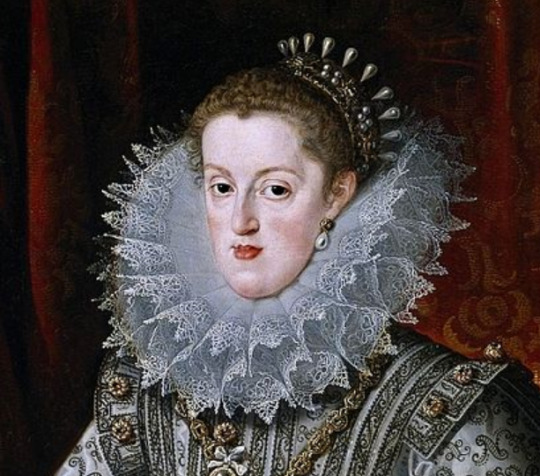
7 notes
·
View notes
Text
19 / 12 / 2023
🇺🇸🇬🇧 ENGLISH / ANGLAIS 🇬🇧🇺🇸
GAME WITH HISTORICAL CHARACTERS :
RULERS DURING THE 16th CENTURY
For this new game with historical characters, I chose to take 4 sovereigns who are considered the most powerful men of their time: Henry VIII Tudor, King of England and Ireland; Francis I of Valois, King of France; Charles V, King of Spain and Emperor of the Holy Roman German Empire (and many other titles); Sultan Süleyman the Magnificent, longest-reigning leader of the Ottoman Empire.
They met (except Süleyman the Magnificent, but he allied himself with Francis I of France), made alliances with each other against each other. They were all beautiful in their youth but did not necessarily become more beautiful when they were older (Süleyman aged well, Francis I of France too, but Henry VIII of England became obese and Charles V's face lengthened and he lost weight).
In the television series about their reign, they are played by tall and muscular actors (Francis I was giant in size, but Henry VIII was muscular in his youth and Süleyman was considered Magnificent as much for his physique as for his reign). All four of them are the embodiment of their country's power, their reign symbolizing a golden age for their country.
They were also all four seducers, two of them having been rather faithful to their true love (Süleyman renounced his concubines to marry the Ukrainian slave Roxelane, renamed Hürrem; Emperor Charles V only deceived only once his wife and cousin the beautiful Isabella of Portugal), while two others were very unfaithful to their wives (Francis I humiliated his two wives Claude of France and Eleonore of Austria, sister of Charles V, by having favorites; Henry VIII divorced or beheaded his wives).
_
🇨🇵 FRANÇAIS / FRENCH 🇨🇵
JEU AVEC DES PERSONNAGES HISTORIQUES :
SOUVERAINS DU XVIe SIÈCLE
Pour ce nouveau jeu avec des personnages historiques, j'ai choisi de prendre 4 souverains qui sont considérés comme les hommes les plus puissants de leur temps : Henry VIII Tudor, Roi d'Angleterre et d'Irlande ; François Ier de Valois, Roi de France ; Charles Quint de Habsbourg, Roi d'Espagne et Empereur du Saint-Empire Romain Germanique (et plein d'autres titres) ; le Sultan Süleyman le Magnifique, chef au plus long règne de l'Empire Ottoman.
Ils se sont rencontrés (sauf Süleyman le Magnifique, mais il s'est allié à François Ier de France), ont fait des alliances les uns avec les autres les uns contre les autres. Ils ont tous été beaux dans leur jeunesse mais n'ont pas forcément embelli (Süleyman a bien vieilli, François Ier de France aussi, mais Henry VIII d'Angleterre est devenu obèse et le visage de Charles Quint s'est allongé et il a maigri).
Dans les séries télévisées portant sur leur règne, ils sont incarnés par des acteurs grands et musclés (François Ier était géant en taille, mais Henry VIII était musclé dans sa jeunesse et Süleyman était considéré comme Magnifique autant pour son physique que pour son règne). Ils sont tous les quatre l'incarnation de la puissance de leur pays, leur régne symbolisant un âge d'or pour leur pays.
Ils étaient aussi tous les quatre des séducteurs, deux d'entre eux ayant été plutôt fidèle à leur véritable amour (Süleyman a renoncé à ses concubines pour épouser l'esclave ukrainienne Roxelane, renommée Hürrem ; l'Empereur Charles Quint n'a trompé qu'une seule fois son épouse et cousine la belle Isabelle du Portugal), alors que deux autres ont été très infidèles à leurs épouses (François Ier a humilié ses deux épouses Claude de France et Éléonore d'Autriche, sœur de Charles Quint, en ayant des favorites ; Henry VIII a divorcé ou décapité ses épouses).
🇬🇧 You have to chose between these versions : All of them are shown as loyal to their lover (depending if they prefer their mistress or wife), fucking rough (Henry VIII, Francis I) or tenderly (Carlos V, Süleyman). Towards their servants, they are cocky and arrogant (Francis I in Carlos Rey Emperador is shown as someone who likes being served), or who treats them as objects or sometimes as friends (Henry VIII), who doesn't even looks at them (Carlos V) or who treats them well as long as they are obedient.
🇨🇵 Vous devez choisir parmi ces versions :
1. King Carlos V of Spain, Emperor of the Holy Roman Empire (played by the Spanish actor Álvaro Cervantes in the Spanish tv series CARLOS REY EMPERADOR, 2015)


2. Henry VIII Tudor, King of England and Ireland (played by the Irish actor Jonathan Rhys-Meyers in THE TUDORS, 2007-2010)


3. King Francis I of France (Alfonso Bassave in CARLOS REY EMPERADOR (2015-2016))


4. Sultan Süleyman of the Ottoman Empire (played by the Turkish actor Halit Ergenç in the Turkish tv series MUHTEŞEM YÜZYIL, 2011-2014)


@jonathanrhysmeyersworld @turkishfeet @leftprogrammingroadtripdean @tidodore2 @faggotdreams @rainykpoptravelcreator @gayhopefullove @innerpiratefun @lovefanfiction01
2 notes
·
View notes
Text
Comuneros, la revolución que pudo ser

Por Isabel García
Fuentes: Nueva Tribuna
Comunes el sol y el viento
común ha de ser la tierra,
que vuelva común al pueblo
lo que del pueblo saliera.
(Los Comuneros. Romance de Luis López Álvarez. 1972)
Los acontecimientos que se vivieron hace 500 años en tierras de Castilla podrían haber cambiado el curso de la historia de España. Así lo cree un buen número de historiadores que ve el levantamiento comunero no solo como una revolución, sino como la primera gran revolución de la era moderna en Europa y adelantada a su tiempo. Una revolución frustrada pero que, para muchos, dejó los mimbres de la esencia de una nación en su lucha por la conquista de las libertades.
El 23 de abril, Día de Castilla y León y fiesta oficial de esta comunidad autónoma, se conmemora el aniversario de la batalla de Villalar, con la derrota del movimiento comunero y el apresamiento y ejecución el día después de sus tres principales líderes, Juan de Padilla, Juan Bravo y Francisco Maldonado. Ese 23 de abril de 1521 se daba fin a una aventura que puso en jaque al todopoderoso Carlos V y que sigue sirviendo de inspiración para movimientos políticos y sociales en la España contemporánea.
El documental Comuneros de Pablo García Sanz, estrenado en 2022, recupera este episodio histórico con el testimonio de historiadores e investigadores y una narración espléndida entrelazada con los versos del romance ‘Los Comuneros’ que el poeta berciano Luis López Álvarez escribió en 1972.
Tras la muerte de Isabel la Católica en 1504, la Corona de Castilla se sumió en una crisis institucional que duró dos décadas. Aunque la heredera natural del trono era Juana I de Castilla y siguió siendo oficialmente reina hasta 1555, fue apartada de todo poder real primero por su padre, Fernando el Católico y después por su hijo Carlos I, que se autoproclamó rey de Castilla y Aragón. La naturaleza de un monarca, al que muchos veían como un “extranjero”, que trajo a su corte de flamencos a Castilla, valiéndose del dinero y riquezas del reino para convertirse en emperador, levantó recelos en las élites castellanas que derivó en la conocida como ‘Guerra de las Comunidades’.
“La integración de Castilla en el imperio se presentaba como una catástrofe nacional. Había que defender, incluso conta el rey si llegaba a ser necesario, los intereses del reino”, nos cuenta el historiadorJoseph Pérez en su libro Los comuneros. Para ellos, el reino estaba por encima del rey, y dada la dejación manifiesta de Carlos V por los intereses de Castilla, según pensaban, intentaron basar su legitimidad en su madre, la reina Juana, recluida en Tordesillas hasta su muerte, pero no lo consiguieron.
Los comuneros, la comunidad, el común�� “Siempre hablaban de volver al orden, es decir, recuperar el orden, en ningún caso ellos entendían que estaban haciendo algo malo, declararse comunero en ese momento era declararse en comunidad para lograr el bien común”, señala en el documental la historiadora Claudia Möller. Su objetivo era someter a la nobleza y al rey a la ley “adelantándose a una teoría que en el resto de Europa tardaría aún siglos en cuajar: el principio de representación política”, afirma Joseph Pérez. El hecho de considerar este movimiento como una revolución y no como una rebelión o una revuelta, radica, a juicio de los investigadores, en la proclamación oficial de la Santa Junta en Tordesillas, máximo órgano dirigente del movimiento. ‘Santa’ no por religiosa, sino por ‘universal’. Además, los comuneros dejaron por escrito un esbozo de Constitución, la ‘Ley Perpetua’, precisamente ‘perpetua’ por su carácter supremo, al que estaban sometidos todos, incluida la propia figura del rey.
En su libro, Joseph Pérez alude al historiador José Antonio Maravall, autor de otro trabajo publicado en 1963 bajo el título Las Comunidades de Castilla. Una primera revolución moderna. En el mismo, el historiador afirma que “con los comuneros se llega implícitamente a concebir el pueblo como unidad y a considerarlo, en consecuencia, capaz de ser sujeto del poder”.
Carlos V venció a los comuneros tras la victoria de Villalar y la ejecución de sus tres principales líderes. Pero su venganza se prolongó durante mucho tiempo, con la ejecución, cinco años después del obispo Acuña, clérigo español que participó junto al bando comunero, y la persecución de María Pacheco, esposa de Padilla, que no solo murió exiliada en Portugal, sino que el emperador también le negó ser enterrada en su tierra natal, Toledo. La represión también se extendió contra los descendientes de los líderes. Tal saña, por parte de Carlos V, explica en buena medida la amenaza de primer orden que supuso para su reinado la revuelta comunera. Si Padilla, Bravo y Maldonado hubieran conseguido la firma de Juana en la ‘Ley Perpetua’, su hijo hubiera perdido todo poder y la historia de España podría haber sido diferente: a partir de ese momento, se impuso en España y en toda Europa la monarquía absoluta.
UN MOVIMIENTO LIBERTADOR
En el siglo XIX, los comuneros se convirtieron en manos de los liberales en un movimiento libertador. “El liberalismo militante del siglo XIX redescubre a los comuneros, convierte en mártires a sus jefes y enarbola la bandera en su nombre para luchar contra el absolutismo”, escribe Joseph Pérez. Décadas después, el propio Manuel Azaña, escribía: “Los comuneros sí querían ser libertadores. Querían librarse del despotismo cesarista, del gobierno por favoritos, del predominio de una clase”.
En el documental, el historiador Julio Valdeón asegura que “los comuneros de Castilla son un punto de referencia imprescindible para todos los movimientos de la España contemporánea que tenían como objetivo fundamental la conquista de las libertades”. Y el historiador Salvador Rus va aún más lejos al señalar que los cuatro valores fundamentales de la Constitución de 1978: libertad, igualdad, justicia y pluralismo, “eran los pilares que sustentaban el movimiento comunero”.
Para la historiadora Möller de la Universidad de Valladolid, el movimiento comunero “tiene unas connotaciones increíblemente revolucionarias entonces y ahora». Asegura que «no tiene nada que envidiarle a la revolución francesa, lo que pasa es que Francia siempre construye unos relatos extraordinarios y no entiendo porque nosotros no lo hemos construido con los intelectuales que hemos tenido, no lo puedo entender. Es hora de empezar a escribir el relato verdadero de lo que ha sucedido y entenderemos porqué festejamos el 23 de abril [día de Castilla y León]. Es una gran revolución, y además una revolución moderna anticipándose muchos años a la francesa».
Y un último apunte: ¿por qué la bandera republicana es roja, amarilla y morada? El Gobierno de la República acordó añadir una franja morada a la bandera bicolor como reconocimiento al pueblo de Castilla. Se basaron en una tradición liberal que creyó que el estandarte comunero era violeta cuando en realidad era rojo carmesí. Un error, debido seguramente al desteñido de los tejidos, ajados por el tiempo y al desgaste, llevó a esta confusión histórica.
Muy recomendable el documental ‘Comuneros’ disponible en Netflix; y el libro de Joseph Pérez ‘Los Comuneros’.
Fuente: https://www.nuevatribuna.es/articulo/cultura—ocio/comuneros-revolucion-que-pudo-ser/20230410161338210484.html
3 notes
·
View notes
Text
Tal día como hoy 28 de marzo ...
1979: Ocurre un grave accidente en la central nuclear Three Mile Island en Harrisburg, Pensilvania (Estados Unidos). En la que hubo un escape de desechos y gases radioactivos a varios kilómetros a la redonda.
1935: Virgilio Leret, ingeniero aeronáutico, patenta en Madrid el primer motor a reacción, un 'mototurbocompresor' de reacción continua. Al año siguiente será fusilado por Franco.
1933: El Parlamento alemán otorga poderes dictatoriales a Adolf Hitler.
1920: En Estados Unidos se legaliza que las mujeres puedan votar, a excepción de las mujeres negras.
1909: Comienzan a funcionar en Madrid (España) los diez primeros automóviles, con carácter experimental.
1895: Los hermanos Lumiére presentan en el Fomento de la Industria Nacional de París (Francia) su invento 'el cinematógrafo'.
1882: Se implanta por ley en Francia la enseñanza primaria obligatoria.
1845: Se estrena en Madrid la obra de teatro "Don Juan Tenorio", de José Zorrilla, la obra teatral más representativa del romanticismo español.
1638: En Calabria (Italia) suceden en las últimas 24 horas tres terremotos de magnitud 7,0 de la escala sismológica de Richter que causan al menos 10.000 muertos.
1556: Felipe II es coronado rey de España en Valladolid.

(Felipe II, el Prudente, nació en Valladolid el 21 de mayo de 1527, hijo del emperador Carlos V y de Isabel de Portugal)
3 notes
·
View notes
Conversation
Duke of Alba: I have an idea.
Charles V: We will not dispatch an army.
Duke of Alba: I no longer have an idea.
#Fernando. shiny swords and bloody battles :')#Duke of Alba#Charles V#Carlos V#Carlos Rey Emperador#European history#incorrect carlos rey emperador#spanish history#not mco
2 notes
·
View notes
Text
youtube
Edit of one of my favorite couples from
Carlos Rey Emperador. Maria & Maximilian.
#Maximilian ii#Maria of austria#Maria of austria and portugal#carlos rey emperador#Charles v#period drama edit#period drama#historical edit#Alvaro cervantes#infanta maria#maximiliano ii#house of habsburg#habsburg#Youtube
6 notes
·
View notes
Text
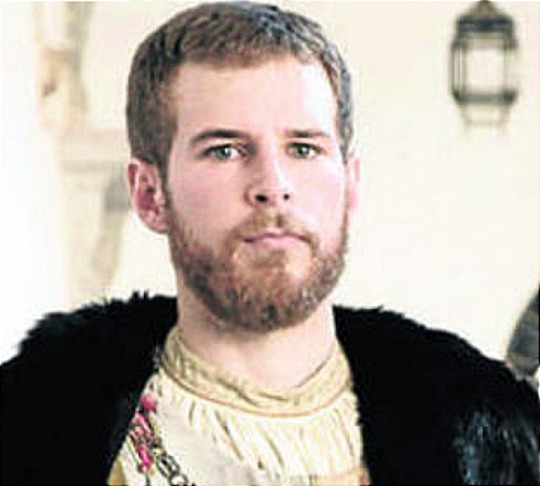
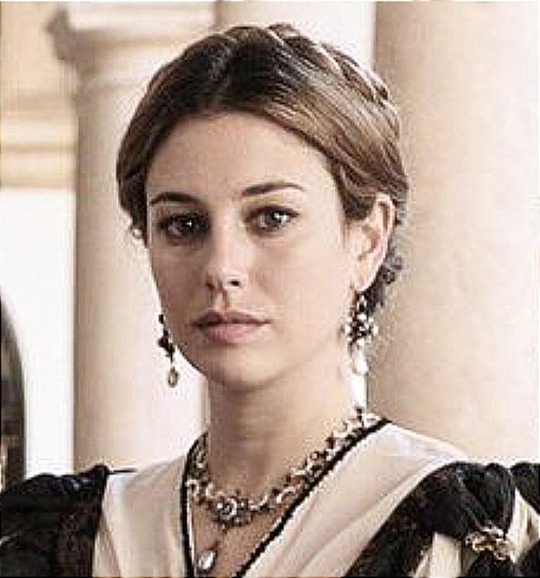








Álvaro Cervantes and Blanca Suárez as Charles V and Isabella of Portugal in Carlos Rey Emperador
#isabel de portugal#isabella of portugal#charles v#carlos v#carlos rey emperador#alvaro cervantes#blanca suarez#tumblr art
5 notes
·
View notes
Text
Me when John III of Portugal and Eleanor of Austria just couldn’t be allowed to be together

1 note
·
View note